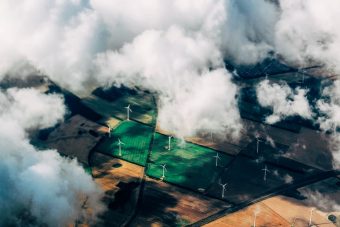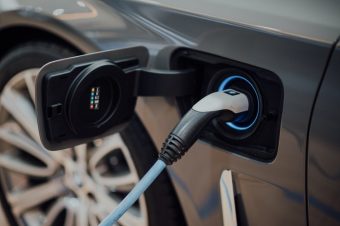On the second day of the OIE Serbia 2024 conference, several panels were held, the first of which was titled Challenges in Financing and Insuring Renewable Energy Projects.

During the panel discussion, experts, including bankers and lawyers, discussed the financial frameworks and legal structures shaping renewable energy projects. It was emphasized that banking support is essential, covering up to 50 percent of project capital through special loans that are predominantly non-recourse, meaning banks have limited claims, ensuring that financial risks align with the success of the project. The discussion also touched on broader aspects of the energy industry, such as electricity price volatility and the impact of macroeconomic factors on the renewable energy sector. Despite the challenges, the industry’s positive outlook is supported by government regulations and strategic investments, aiming to increase Serbia’s renewable energy production to 45 percent by 2030. The conversation also addressed the sector’s potential and the challenges it faces, such as the gap between current capacities and future goals, the importance of rapidly implementing these capacities, project profitability, and the technical and regulatory challenges of adapting the grid for higher renewable energy capacities. The role of Power Purchase Agreements (PPA) in facilitating investments was particularly highlighted, as well as the evolution of these agreements and their significance in the EU context, all pointing to a dynamic sector ready for substantial growth with efficient collaboration between the government, financial institutions, and energy companies.
The following panel focused on ESG principles and sustainable development in transportation.
One of the panelists was Aleksandra Đurđević, Vice President of Delta Holding, who spoke about the historical overview of the introduction and development of electric vehicles (EVs) in Serbia, highlighting the crucial role of Delta Auto Group, which imported the first electric car into the country 7-8 years ago. She emphasized the initial integration of models under the “Born Electric” concept. She also addressed financial incentives for EV adoption, including subsidies of €5,000 for electric cars and €2,000 for hybrids, which should reflect a broader strategy of integrating hybrid vehicles as a logical step towards fully electric vehicles, given the current state of infrastructure. The removal of subsidies for hybrid vehicles and the provision of subsidies exclusively for electric vehicles is automatically slowing the transition to them, which is why efforts are being made to keep hybrids included during the transitional period towards e-mobility.
What was particularly interesting in the presentation was the multi-brand location project covering 17,000 square meters in New Belgrade, which stands out for its environmental awareness and commitment to material recycling. Although a much more expensive, slower, and complicated process, three existing buildings will be recycled, not demolished. 75 percent of materials such as metal, steel, and glass will be recycled, saving about 150 metric tons of CO2. As vehicles are washed daily at the service center, the water purification process will enable the reuse of about 200 out of 300 liters of water per vehicle wash, significantly contributing to sustainability. Solar panels will produce 130,000 kWh of electricity annually, meeting a large portion of the location’s energy needs. She emphasized that the implementation of ten electric vehicle chargers and façade lighting will further increase the facility’s energy efficiency, making it one of the greenest BMW facilities in Europe. The application of all environmental standards demonstrates how the automotive industry can actively contribute to sustainability, setting high standards in the auto industry and showcasing the successful implementation of ambitious environmental projects at the local level with the support of global partners.

As we have already written extensively about the third panel, which focused on solar energy, it remains to mention the final panel held that day, which covered Energy Storage/Grid Connection/Electricity Market.
During the panel on energy storage and the electricity market, the focus was on upcoming legislative changes, particularly updates to energy laws and regulations. These changes are expected to significantly liberalize the market and allow for the benefits of ongoing large-scale projects, aimed at aligning with European Commission directives. Emphasis was placed on the transition to renewable energy sources and the gradual phasing out of CO2-emitting vehicles by 2035, illustrating a proactive approach in the energy sector that aligns with global strategic shifts towards more sustainable and eco-friendly practices.
The discussion also highlighted the importance of adapting markets and regulatory frameworks to effectively support these transitions, with expectations that legislative and policy reforms, particularly regarding energy standards and market integration, will provide a more flexible and open market environment. This includes anticipation of regulatory adjustments that will improve business practices and align them with European standards, with the hope that these changes will further boost market liquidity and create clearer contractual environments by 2026.
Energy Portal

